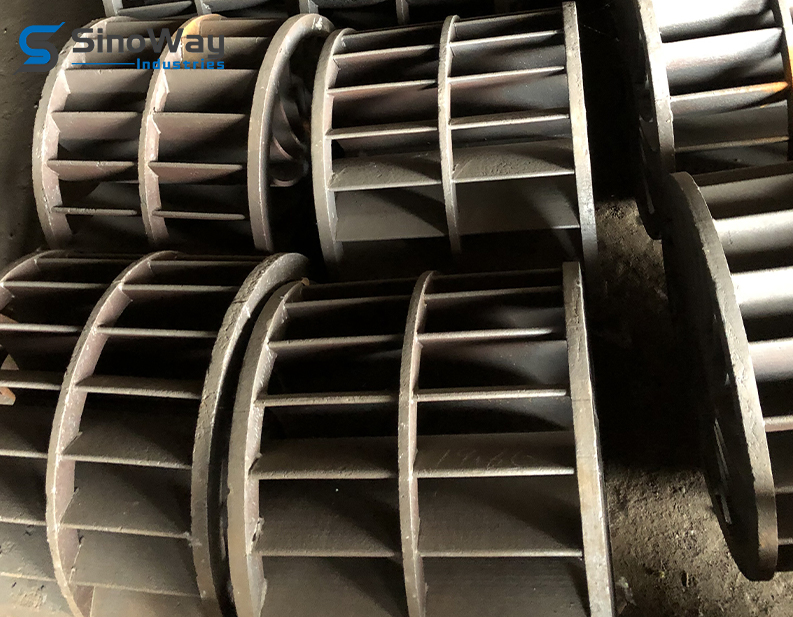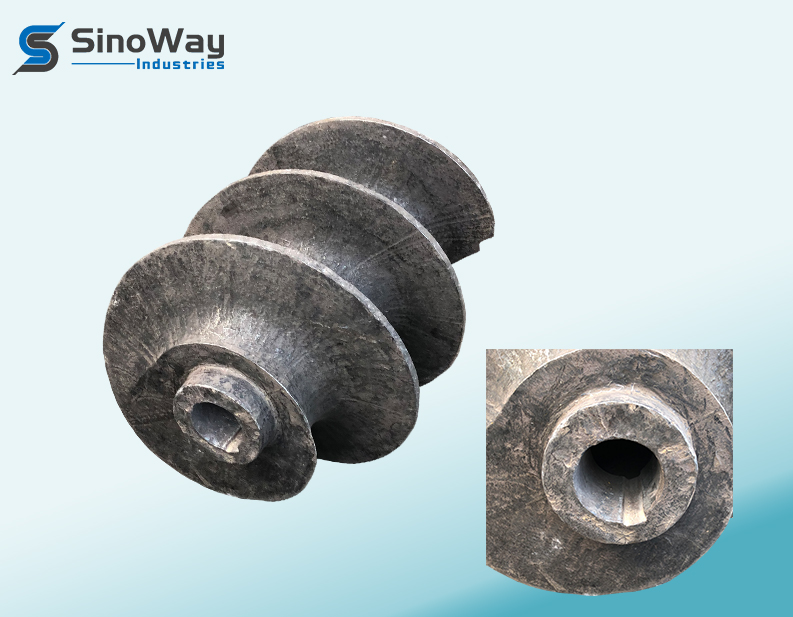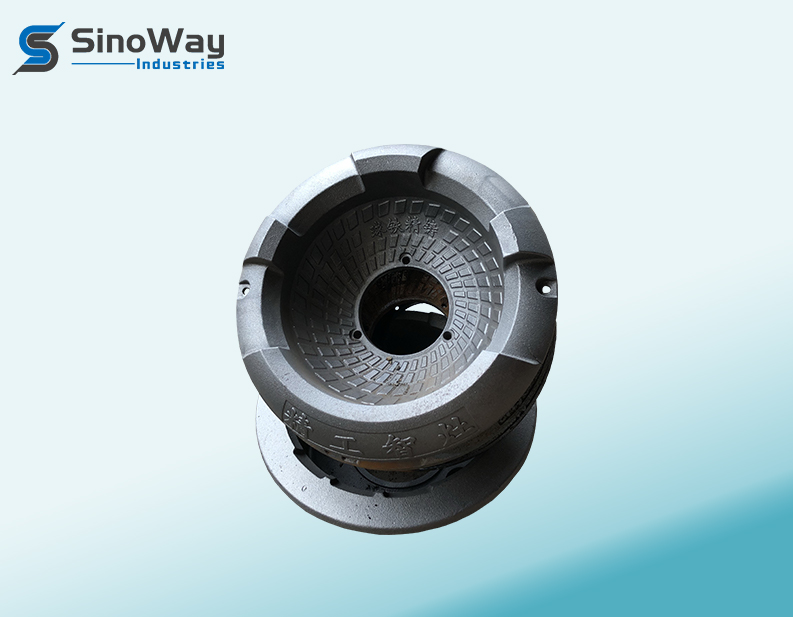In today’s fast-paced manufacturing landscape, optimizing product design for manufacturability is more crucial than ever. As a leading sheet metal manufacturer, Sinoway is committed to helping customers understand the intricacies of the sheet metal forming process. By shedding light on the latest techniques and best practices, we empower designers and engineers to create products that are not only functional but also cost-effective and easy to manufacture.
What is Sheet Metal Forming?
Sheet metal forming is a versatile manufacturing process that transforms flat sheets of metal into desired shapes and structures. This process involves applying force to the metal sheet, causing it to deform plastically without removing any material. The result is a strong, lightweight, and precisely shaped component used in industries such as automotive, electronics, construction, and consumer goods.
Key Sheet Metal Forming Techniques
- Bending: The sheet is bent along a straight axis, creating angles and channels.
- Deep Drawing: A punch pushes the metal into a die to create deep, hollow shapes such as cups or enclosures.
- Stamping: Dies are used to cut or shape the metal sheet into complex patterns or forms.
- Spinning: A lathe spins the metal while a tool shapes it into round, symmetrical parts.
- Roll Forming: The metal passes through a series of rollers that progressively shape it.
At Sinoway, we utilize state-of-the-art equipment and skilled technicians to deliver precision-formed sheet metal components tailored to our clients’ unique requirements.
Importance of Design in Sheet Metal Forming
Design plays a pivotal role in the success of any sheet metal project. A well-thought-out design not only ensures the functionality of the final product but also reduces manufacturing costs, minimizes waste, and improves production efficiency. Collaborating with an experienced sheet metal manufacturer like Sinoway during the design phase can help identify potential challenges early and optimize the design for manufacturability.
Design Considerations for Sheet Metal Forming
- Material Selection: Different metals (such as steel, aluminum, or copper) offer varying properties in terms of strength, ductility, and corrosion resistance.
- Thickness: The thickness of the sheet affects its formability and the types of processes that can be used.
- Bend Radius: Maintaining a minimum bend radius prevents cracking and ensures structural integrity.
- Tolerances: Designing with realistic tolerances helps avoid costly rework and ensures parts fit together as intended.
- Hole Placement: Avoid placing holes too close to bends to prevent distortion or tearing.
Integrating these considerations into the design phase can significantly enhance the manufacturability and performance of the final product.
Step-by-Step Sheet Metal Forming Process at Sinoway
At Sinoway, we follow a meticulous process to ensure every sheet metal component meets the highest standards of quality and precision. Here’s a breakdown of our typical workflow:
| Step | Description |
|---|---|
| 1. Design Review | Our engineers collaborate with clients to review CAD files, suggest improvements, and finalize the design. |
| 2. Material Preparation | We select and cut the appropriate sheet metal according to project specifications. |
| 3. Forming | The chosen forming technique (bending, stamping, etc.) is applied using advanced machinery. |
| 4. Secondary Operations | Processes such as welding, tapping, or surface treatment are performed as needed. |
| 5. Inspection | Each part undergoes rigorous quality checks to ensure dimensional accuracy and finish. |
| 6. Delivery | Finished components are packaged and shipped to the client. |
This structured approach allows Sinoway to consistently deliver high-quality sheet metal parts on time and within budget.
Latest Trends in Sheet Metal Forming
The sheet metal industry is evolving rapidly, thanks to advancements in automation, digital design, and precision engineering. At Sinoway, we embrace these innovations to enhance our capabilities and offer our clients the best possible solutions.
Automation and Digitalization
Modern sheet metal forming increasingly relies on computer-aided design (CAD) and computer-aided manufacturing (CAM) systems. These technologies enable accurate simulations, faster prototyping, and seamless integration with automated machinery. As a result, lead times are reduced, and product quality is improved.
Precision Sheet Metal Fabrication
Precision is paramount in industries such as electronics and aerospace, where even minor deviations can lead to significant issues. Sinoway utilizes advanced measurement tools and quality control protocols to ensure every component meets strict tolerances. This focus on precision sheet metal fabrication enables us to serve customers with demanding applications.
Custom Sheet Metal Parts: Unlocking Design Flexibility
One of the key advantages of working with Sinoway is our ability to produce custom sheet metal parts tailored to unique project requirements. Whether you need a prototype for testing or a large production run, our team can accommodate complex geometries, special materials, and challenging specifications.
- Rapid prototyping for fast design validation
- Low-to-high volume production capabilities
- Wide range of finishing options (powder coating, anodizing, etc.)
- Collaborative design support to optimize for cost and performance
By offering custom solutions, Sinoway helps clients bring innovative products to market faster and more efficiently.
Best Practices for Designers Working with Sheet Metal
To achieve the best results in sheet metal fabrication, designers should keep the following best practices in mind:
- Involve your sheet metal manufacturer early in the design process
- Use standard bend radii and hole sizes where possible
- Simplify part geometries to reduce tooling and manufacturing complexity
- Specify appropriate tolerances for the application
- Consider assembly methods and how parts will fit together
By collaborating closely with Sinoway, you can avoid common pitfalls and ensure your product is optimized for both performance and manufacturability.
Conclusion: Partner with Sinoway for Your Next Project
Sheet metal forming is a complex yet highly rewarding process when approached with the right knowledge and expertise. As a trusted sheet metal manufacturer, Sinoway is dedicated to guiding our clients through every stage—from design and prototyping to production and delivery. By leveraging the latest technologies and adhering to industry best practices, we help you create products that stand out in the market.
Ready to start your next project? Contact Sinoway today to discover how our precision sheet metal fabrication and custom sheet metal parts solutions can drive your business forward.
Tags:sheet metal manufacturing,agriculture machinery,drop forging







